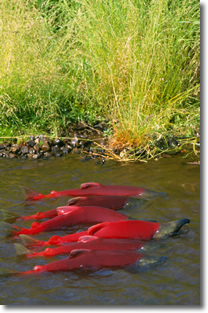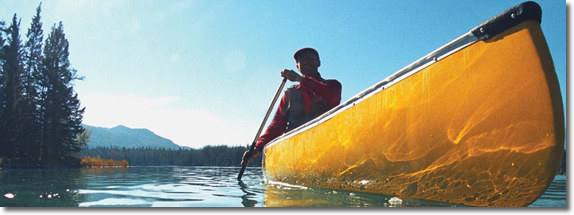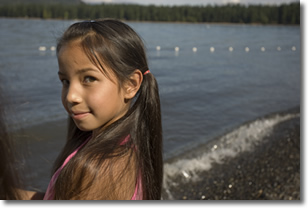First Nations have a strong spiritual connection with water. Water is considered living and must be respected.
This page will help you find out about B.C. government commitments to protecting First Nations’ values around water. These commitments include protecting access for cultural and social practices, facilitating the sharing and use of traditional knowledge in decision making, and ensuring First Nations have a plentiful supply of clean water for communities and development.
First Nations have a variety of cultural and social practices that involve water. These include places of prayer and bathing, stories, dancing and oral histories about water or water bodies, sweat lodges, purification ceremonies, drinking water collection sites, spring water of spiritual significance, medicinal plants nourished by water of spiritual significance, and medicine making.
Ensuring a clean and plentiful water supply on reserves
The Transformative Change Accord is a commitment between the Leadership Council (Representing the First Nations of British Columbia) the Government of Canada, and the Government of B.C. The accord aims to strengthen relationships on a government-to-government basis. Efforts to bridge the differences in socio-economic standards between First Nation citizens and other British Columbians are focused on the areas of education, health, housing and economic opportunities.
Two commitments in Living Water Smart reflect ongoing actions within this accord.
- The B.C. government will cooperate with Canada to ensure the quality of drinking water in all Aboriginal communities will meet the same provincial standards applied across British Columbia by 2015.
- The B.C. government and First Nations’ treaty water negotiations and other related agreements support providing a clean and safe domestic, agricultural and industrial water supply for First Nation communities.

Preserving cultural and social practices
First Nations cultural and social practices around water can be better preserved with a greater understanding of the practices, and the locations that need protecting from activities that impact practices. The B.C. government will continue to work toward building a new relationship and facilitating knowledge sharing with First Nations to help us learn about, respect and uphold what is important to First Nations.
Consulting with First Nations
The need for meaningful consultation with First Nations on water has been clarified by court decisions in B.C. over the last 20 years. In 2005, the Province and First Nations leaders agreed to work together to develop a New Relationship [PDF 25KB] founded on respect, recognition and reconciliation of Aboriginal rights and title. Since 2005, B.C. and First Nations have worked together on a number of initiatives to build a new relationship and close the socio-economic gaps between Aboriginal and other British Columbians.
The Ministry of Aboriginal Relations and Reconciliation reports on implementing the New Relationship.
Facilitating knowledge sharing
First Nations have been observing and learning about water and ecological change in B.C. for generations. Wisdom about water is woven into cultural rules and practices for resource management as well as First Nations oral histories, stories and ceremonies. Traditional ecological knowledge can make a valuable contribution to water science and policy, while also helping to bridge understanding and relationships between First Nations and other resource managers.
There are many benefits from incorporating traditional ecological knowledge into provincial government decision making. Tools like GIS can help map important sites and indicate sensitivity of activities on sites of significance or water resources of significance. This will result in fewer demands on both First Nations and provincial government time. The B.C. government will work with First Nations on priorities for Traditional Ecological Knowledge on water, to help with the development of appropriate tools to incorporate traditional knowledge and information into decision making.




